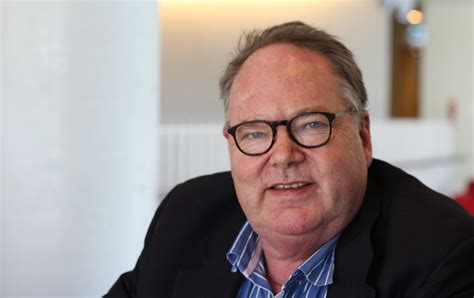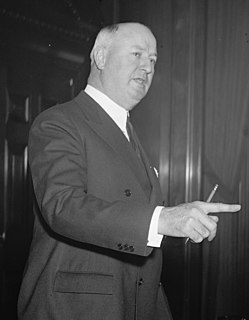A Quote by Daniel Kahneman
However, optimism is highly valued, socially and in the market; people and firms reward the providers of dangerously misleading information more than they reward truth tellers. One of the lessons of the financial crisis that led to the Great Recession is that there are periods in which competition, among experts and among organizations, creates powerful forces that favor a collective blindness to risk and uncertainty.
Quote Topics
Among
Blindness
Collective
Competition
Creates
Crisis
Dangerously
Experts
Favor
Financial
Financial Crisis
Forces
Great
Great Recession
Highly
However
Information
Led
Lessons
Market
Misleading
More
Optimism
Organizations
People
Periods
Powerful
Powerful Force
Providers
Recession
Reward
Risk
Socially
Than
Truth
Uncertainty
Valued
Which
Related Quotes
I believe that the financial crisis of 2008/9 exposed more a lack of ethics and morality - especially by the financial sector - rather than a problem of regulation or criminality. There were, of course, regulatory lessons to be learned, but at heart, there was a collective loss of our moral compass.
Blessed, plainly, is that life which is not valued at the estimation of outsiders, but is known, as judge of itself, by its own inner feelings. It needs no popular opinions as its reward in any way; nor has it any fear of punishments. Thus the less it strives for glory, the more it rises above it. For to those who seek for glory, that reward in the shape of present things is but a shadow of future ones, and is a hindrance to eternal life, as it is written in the Scriptures: 'Truly I say to you, they have received their reward'
Think the very fact that somebody like Mike Pence is seen as useful to the [Donald] Trump campaign would be analytically a sign of difficulty for him because, you know, the Republican Party over the last two decades has needed to include his support among women, among Latinos, among blacks, among young people, and among highly educated people.
Competition has never been more threatening than it is now. Innovative thinkers challenge the status quo in their organizations. They are often viewed as "troublemakers." They threaten the defenders of the status quo. So competition within an organization can also be brutal. The most effective leaders overcome "the ideology of comfort and the tyranny of custom" by being change agents themselves. They encourage and reward innovative thinking. I have observed that people only resist changes imposed on them by other people.
The widely accepted assertion that, only if you let markets be will everyone be paid correctly and thus fairly, according to his worth, is a myth. Only when we part with this myth and grasp the political nature of the market and the collective nature of individual productivity will we be able to build a more just society in which historical legacies and collective actions, and not just individual talents and efforts, are properly taken into account in deciding how to reward people.
There is no finer way to demonstrate love of God than by serving Him in the positions to which we may be called. Occasionally, the reward for that service will be prompt, and we'll see the light in the eyes of the person whom we have helped. Other times, however, the Lord will let us wait a little while and let our reward come another way.




































